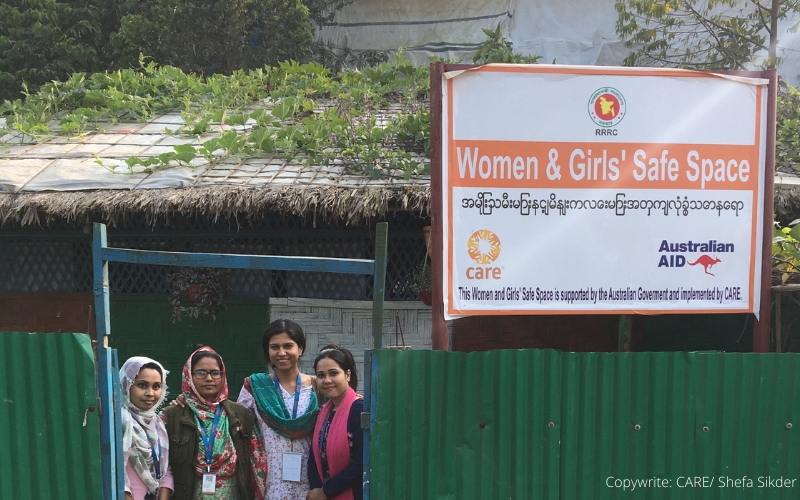Crises often lead to negative coping behaviours that particularly affect women and girls including child/forced marriage, trafficking, and sexual violence. When nearly one million Rohingya refugees fled into Bangladesh in 2017, a CARE gender analysis documented extreme sexual violence, physical assault, and mutilation during the influx, with rape used as a weapon in the conflict. Marginalisation was compounded for women and girls with disabilities, those who are pregnant, and female-headed households which are already at higher risk of poverty and exclusion from services. CARE was one of the first humanitarian organisations to provide SRH services during the initial emergency, and based on the need to integrate services, we began to provide multi-sectoral programmes for SRH and GBV support.
The effects of COVID-19 threaten to cause further constraints on women’s mobility, autonomy, and decision-making power in Cox’s Bazar. Unpaid care work performed by women and girls has increased due to COVID-19. This work includes parenting responsibilities, collecting water, and maintaining household hygiene. Most frontline health workers are also women, and they are at increased risk of exposure to the virus as they perform their duties.
